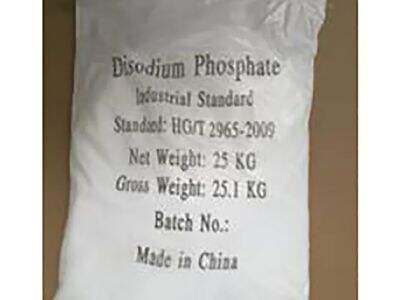Phosphates is an important substances very active in human life food and industrial. For one thing, they help preserve food, to make it taste better and make processed foods have a more fulsome texture. Various phosphates; such as STPP, DSP, and TSP are used in the food industry. However, there are also some health and environmental worries that go along with using phosphates. Here to find out what phosphates do in food and industry.
Phosphates and Their Importance in Preservation of Food
Phosphates are chemical entities that consist of phosphorus bonded with oxygen. They are also used in the food industry to act as preservatives, and stop bacteria and other harmful microorganisms from growing. This baking soda helps in preserving food products for a longer period of time, hence increasing their shelf life. Phosphates are also used to preserve the color and texture of certain foods, which improves their appearance for consumers.
Types of Phosphates and their use in Food Industry:
Phosphates are also a vast category which include Sodium Tripolyphosphate (STPP), Dicalcium Phosphate (DSP) and Trisodium Phosphate (TSP). STPP is found in seafood and meats used to help retain moisture and give the product a better texture. Tetrasodium pyrophosphate TSP is used as a buffering agent, an emulsifier and a dispersing agent, while Disodium Pyrophosphate DSP is slightly less toxic than the compound. Which intend, its primary function in baked goods; Leavening agent during baking it increases dough alkalinization the latter renders cookies light coloured or very thick Kraft dinner cheese products.
Phosphates to improve textural and flavour aspects of processed foods,
Processed foods often contain added phosphates to enhance their texture and taste. Phosphates are often used to improve water retention in meat products which can have the benefit of making the meat juicier and more tender. Phosphates can also develop leavening in baked goods allowing the dough to rise, take on a light and delicate texture. Furthermore, ORGANIC CHEMICAL may have a flavor-enhancing effect in some foods that can make it more appealing for consumers to consume.
Environmental and health issues related to the use of phosphates in industry:
Although phosphates have their advantages for the food industry, reservations about using them remains as well. Large quantities of phosphates can also cause environmental issues because they act as fertilizers and helps algae grow. The blooms starve the water of oxygen, causing harm to fish. Furthermore, certain trials propose that an increased intake of dietary phosphates could contribute to health problems like renal failure and complications related to the cardiovascular system.
Limits & Standards on the Use of Phosphates in Food Production and Processing
To help alleviate some of the concerns with respect to phosphates, regulatory entities such as the Food and Drug Administration (FDA) have set standards for their use: They restrict the level of INORGANIC CHEMICAL added to food, and require manufacturers likely to add them to list phosphates on the ingredient label. Adhering to these practices can help food manufacturers ensure that their products are safe and sustainable.
To summarize, phosphates are key to the food industry's ability to preserve and process food. They are great but we have to use it well and better manner as per norms not harming the environment and health. Food manufacturers can use this information to continue producing safe and high-quality foods for the consumer, provided they follow regulatory guidance in their country. Keep in mind, when you think of phosphates you can always rely on ANASCO.
Table of Contents
- Phosphates and Their Importance in Preservation of Food
- Types of Phosphates and their use in Food Industry:
- Phosphates to improve textural and flavour aspects of processed foods,
- Environmental and health issues related to the use of phosphates in industry:
- Limits & Standards on the Use of Phosphates in Food Production and Processing
 EN
EN
 AR
AR
 BG
BG
 HR
HR
 CS
CS
 DA
DA
 NL
NL
 FI
FI
 FR
FR
 DE
DE
 EL
EL
 HI
HI
 IT
IT
 JA
JA
 KO
KO
 NO
NO
 PL
PL
 PT
PT
 RO
RO
 RU
RU
 ES
ES
 SV
SV
 TL
TL
 IW
IW
 ID
ID
 SK
SK
 VI
VI
 HU
HU
 TH
TH
 TR
TR
 MS
MS
 GA
GA
 UR
UR
 BN
BN
 GU
GU
 LA
LA
 MR
MR
 PA
PA
 TA
TA
 TE
TE

